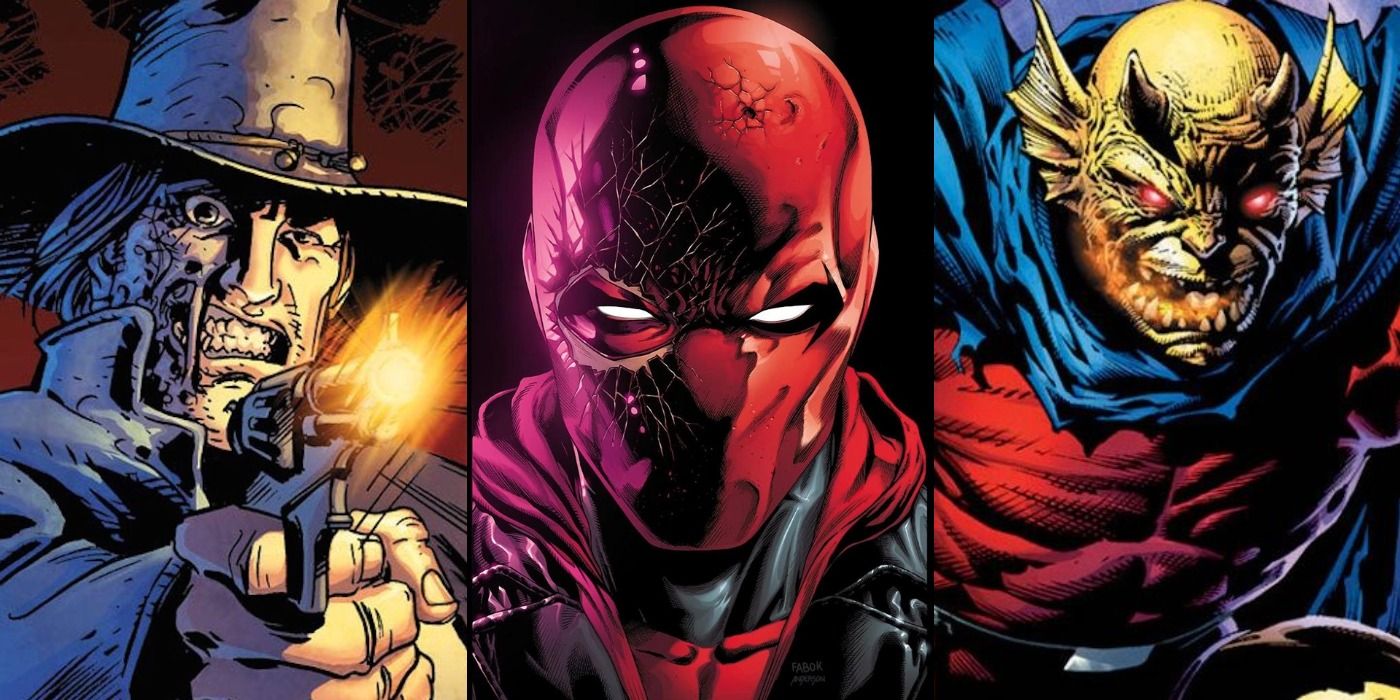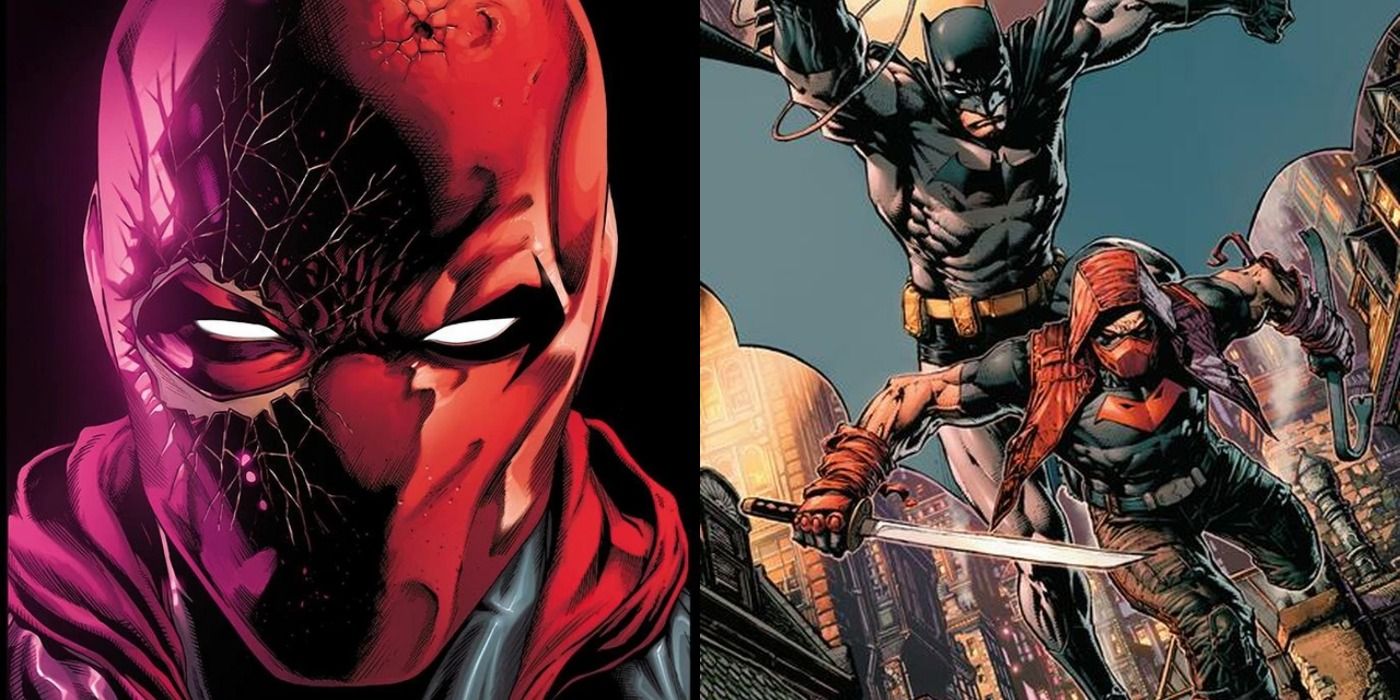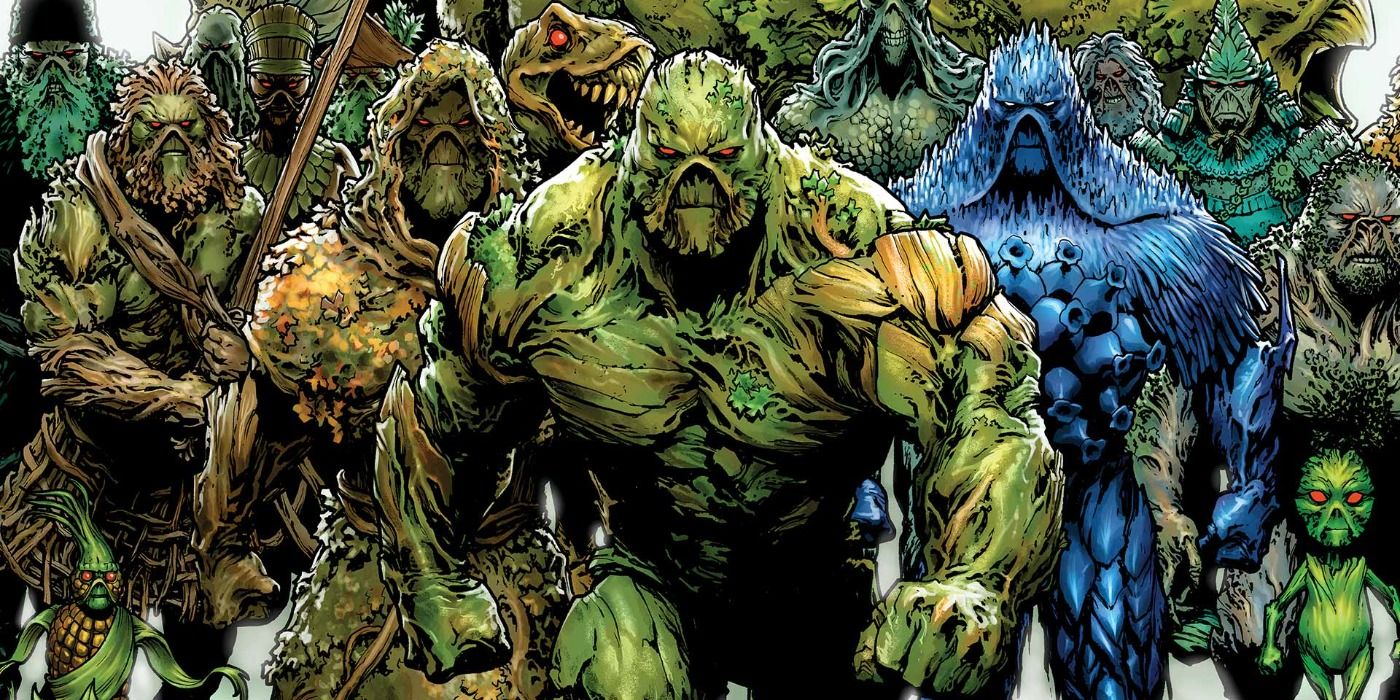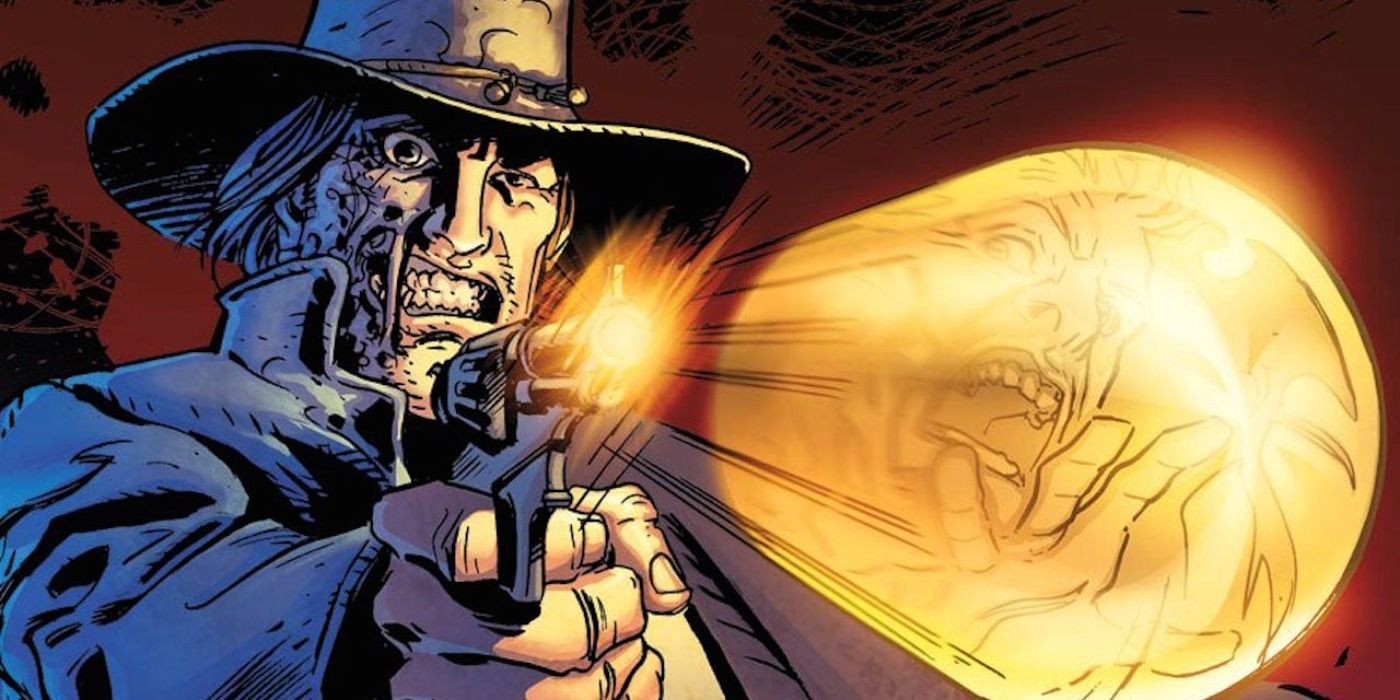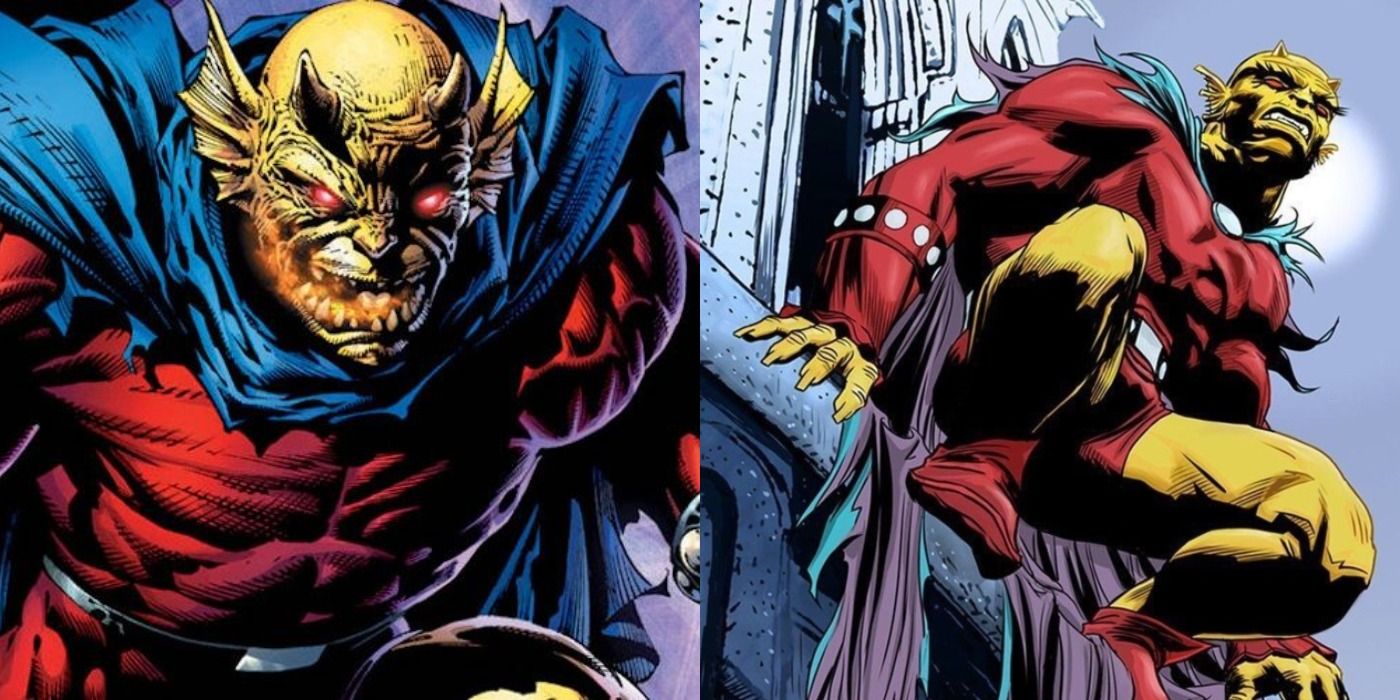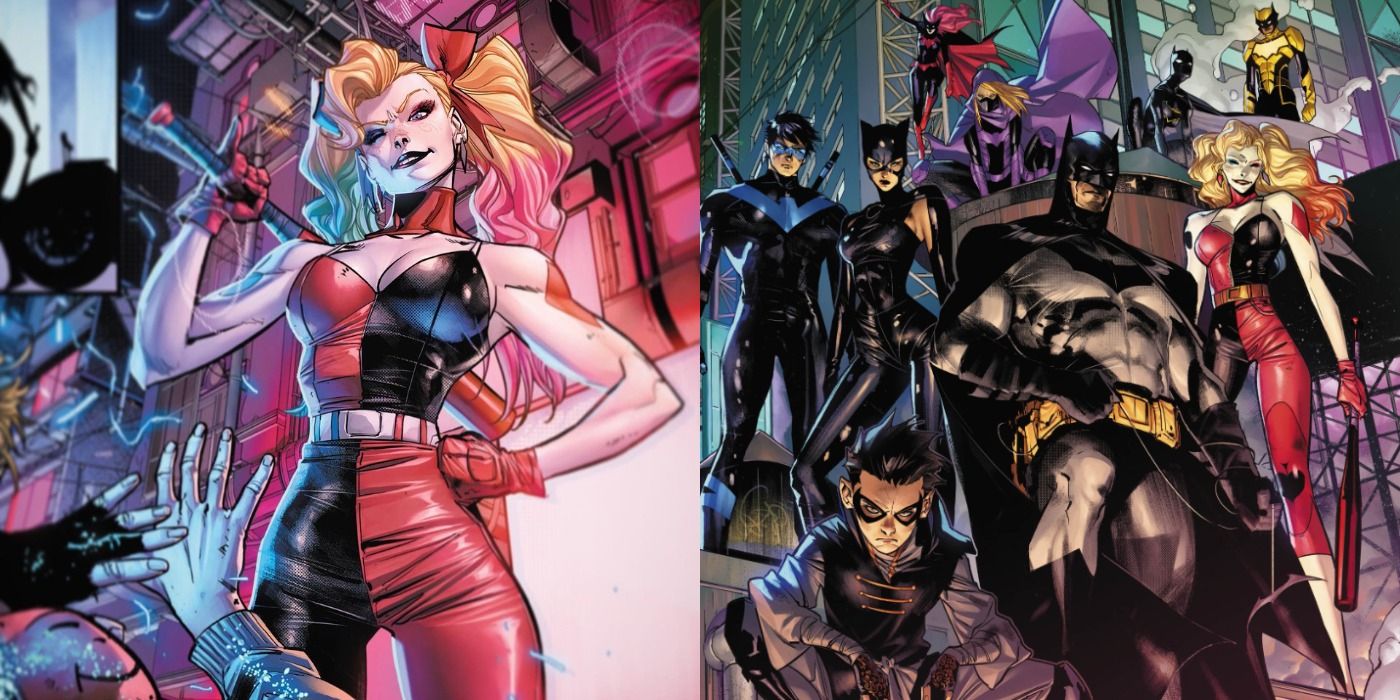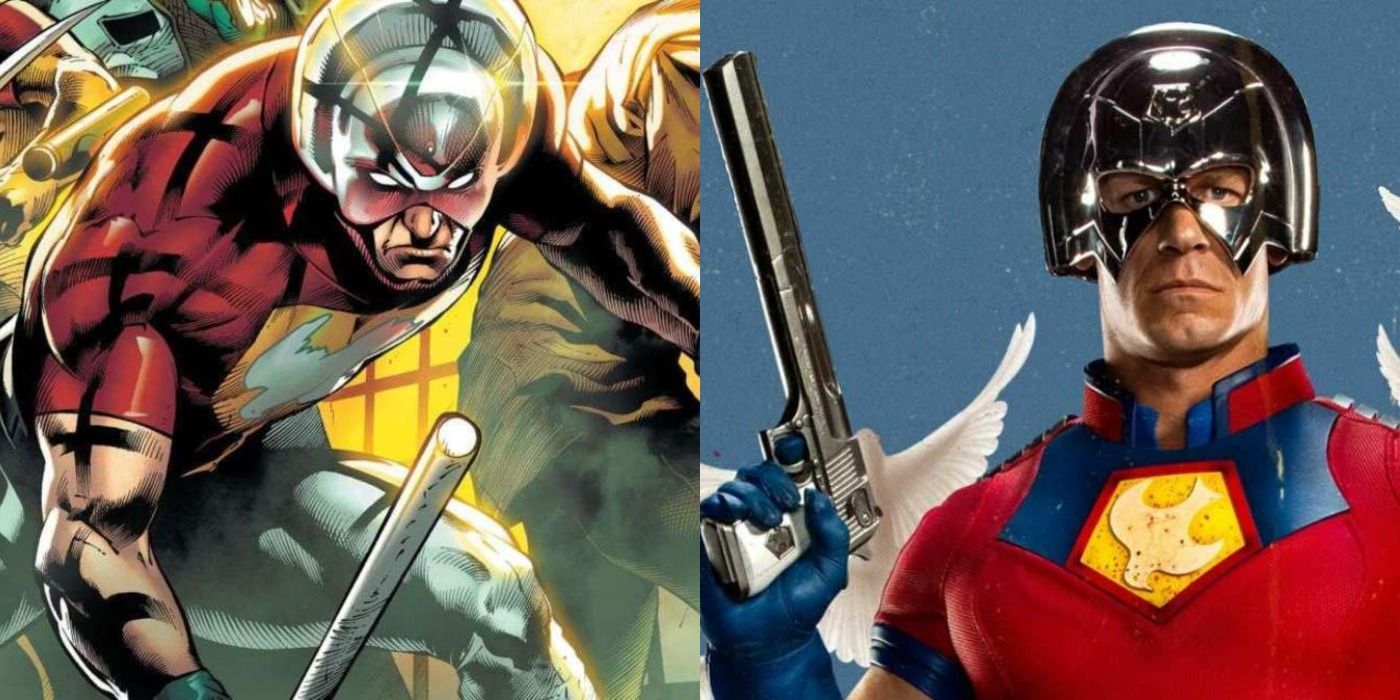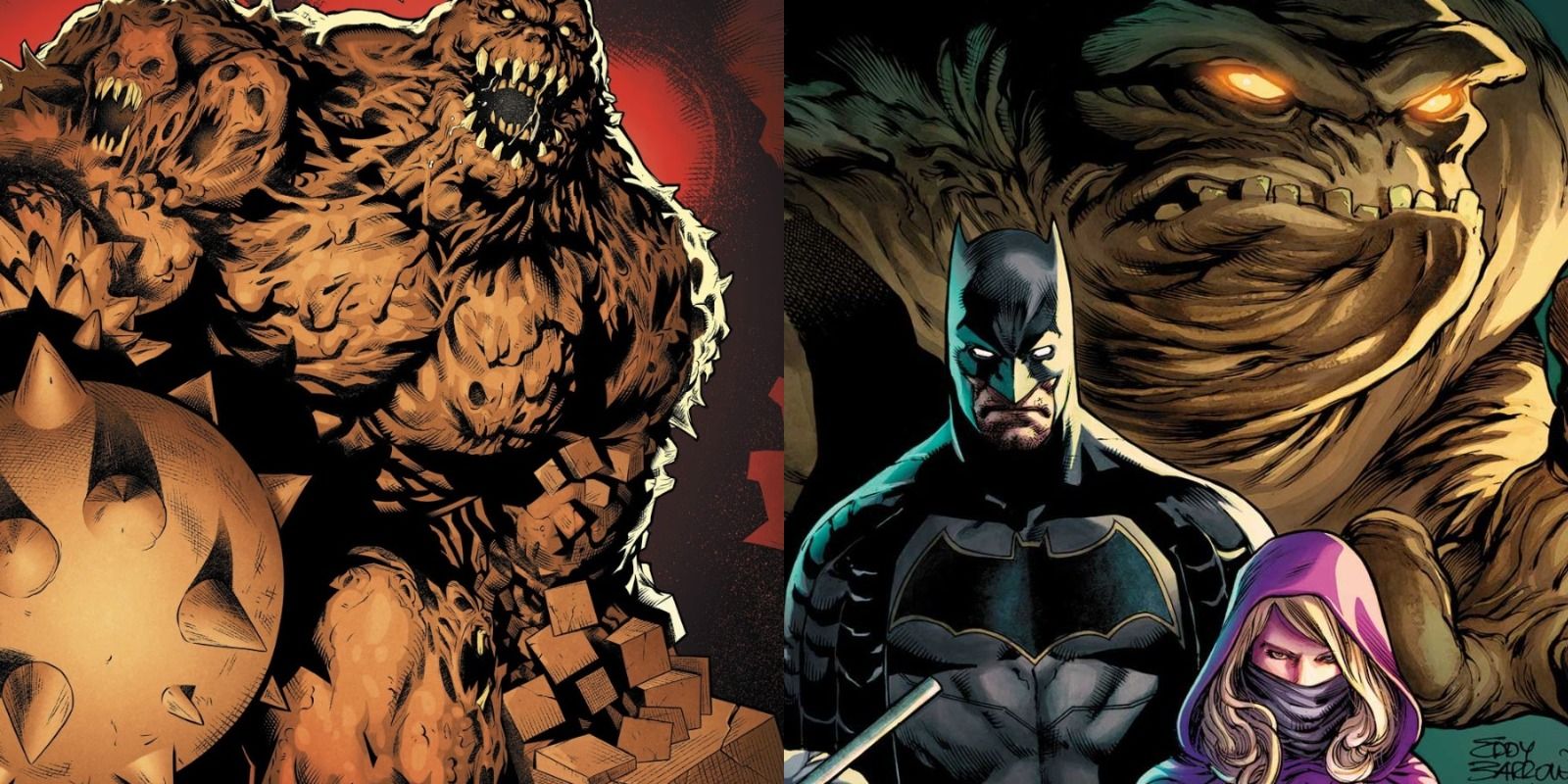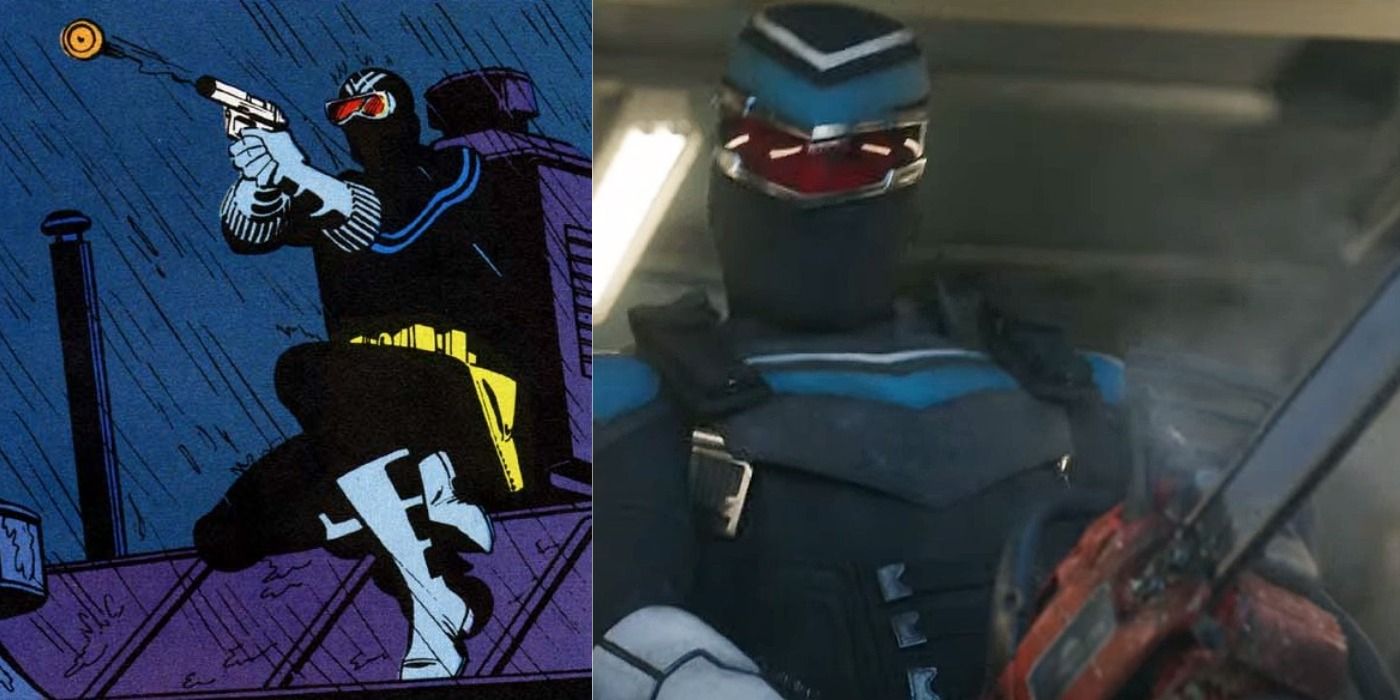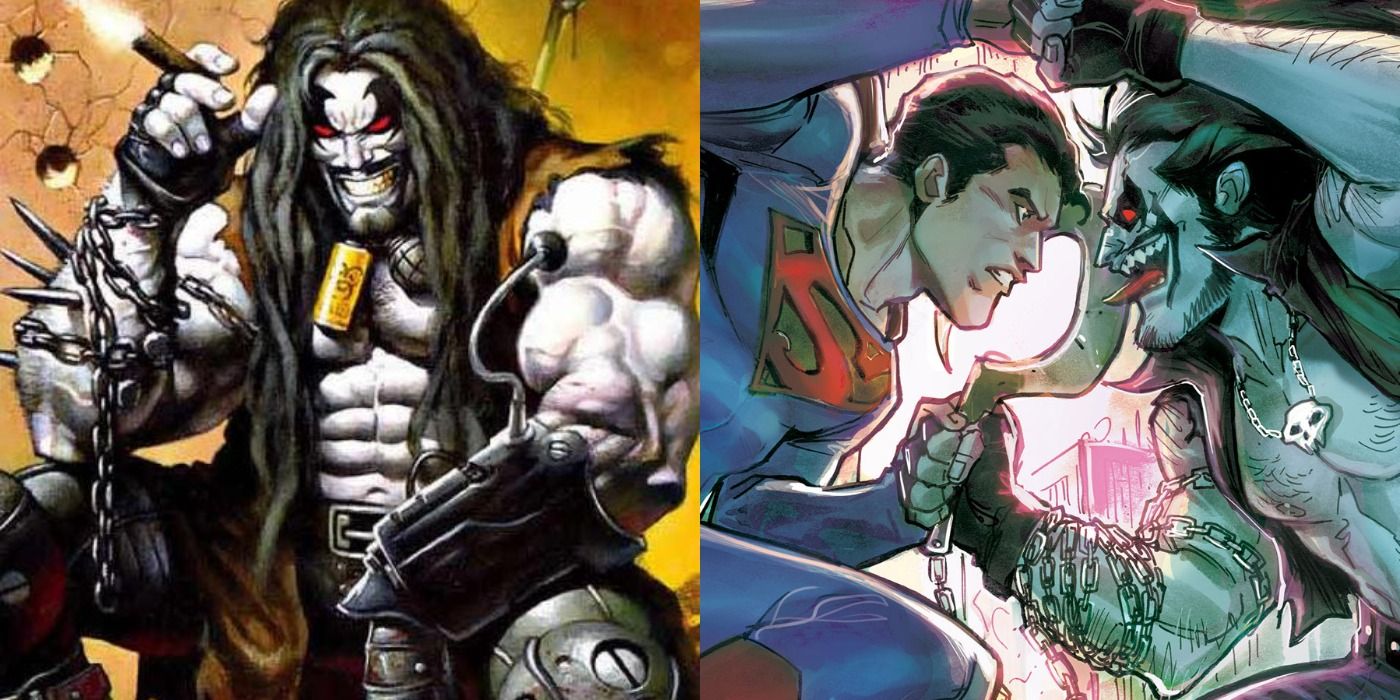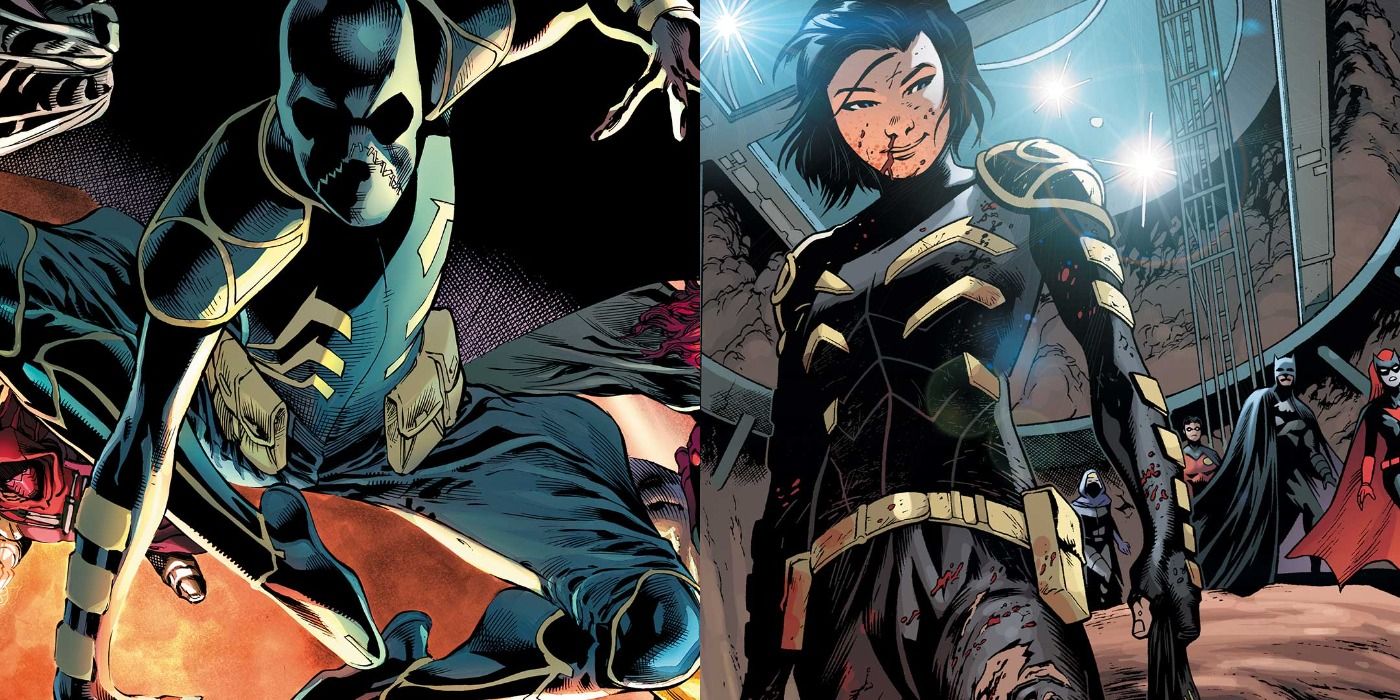DC has built an impressive pantheon of both superhero and supervillain characters over the passing decades. For the latter, plenty of formidable, grim, and bleak characters with the motivations and backstories to match give their corresponding rivals a hard time.
Rogues like the Joker, Darkseid, Lex Luthor, and Sinestro are some that quickly come to fans' minds, but some heroes can surprisingly rival the inherent darkness of their respective villains. The reasoning behind these protagonists' dark personalities ranges from psychological effects from their origins to the core of their motivations.
Red Hood
Jason Todd stands as the most psychologically chaotic of Batman's former Robins. He was the one who had the most trouble with rebellious rage and arrogance, and ironically became part of one of the Joker's most iconic comic panels. The Clown Prince of Crime beat him within an inch of his life with a crowbar, leaving him to die in a timed explosion.
After being thrust back into the living world, Jason became the anti-hero Red Hood, holding bad blood with his adoptive father and claiming to cross the line and do what Batman won't. He takes on Punisher-like traits but does eventually work his way back into the Bat-family proper.
Swamp Thing
There have been several to use the Swamp Thing identity in the vast DC multiverse. His most popular incarnations naturally adopted darker themes to tell his stories. Given the hero's background, they also venture deep into the mystical and occult elements of the universe, including horror. Especially after becoming a mainstay in Justice League Dark, one of DC's best teams yet to make their DCEU debut.
He fights to protect his home, the environment, and humanity in general from supernatural forces, but the darkness of the character frequently stems from an air of tragedy. Alan Moore's iteration borrows "beauty and the beast"-like aspects, leading the character to be presumed dead, but live on a lonely blue planet making mindless plant-based clones of loved ones lost back on Earth.
Jonah Hex
In traditional pop culture, the "wild west" setting is already characterized by lawlessness and unflinching brutality. DC's Jonah Hex takes those core themes to heart, writing a hero/anti-hero with a merciless past, battle-weary, and jaded personality.
His cruel origins involve a Two-Face-like scar, an abusive and alcoholic father, being sold into slavery by him to an Apache tribe, gaining their trust and affection, and being betrayed by both his adoptive brother and more. Jonah Hex becomes a cynical anti-hero with a frightening talent for killing and bounty hunting but still maintains a moral code to stand up for the innocent.
Etrigan
Like Swamp Thing, Etrigan the Demon is another one of DC's best "monster" characters. Also, like the former, his stories and lore lean harder into supernatural settings and characters, making for a good change of pace with the publisher's cosmic and street-level works.
His alter ego Jason Blood was a Knight of Camelot before having a demon bound to his soul, allowing him to transform into his Etrigan form upon reciting a poem. Despite the demonic premise and terrifying appearance, Etrigan vows to fight for justice, but his lethal crimefighting methods certainly have a penchant for the vicious.
Harley Quinn
Invented originally for the acclaimed and timeless Batman: The Animated Series, Harley Quinn quickly became a fan-favorite supervillain. However, she's since transitioned herself into a hero/anti-hero figure that's even part of the Bat-family. But even with her new lease on life, she occasionally has trouble staying in control from her time as the "sidekick" to Batman's greatest supervillain.
That darkness that Harley is still working to fully root out is a big part of her character, especially with her origin story so closely tied to the Joker. While the Batman/Joker dynamic is the biggest metaphorical representation of a cyclical, abusive relationship, Harley and Joker's was the closest to a literal one. Some fans aren't sure of turning Harley into a hero figure, but on the other hand, it could seem understandable for writers to want to finally allow her to heal and break free.
Peacemaker
Having now been popularized by James Gunn and John Cena's adaptation for The Suicide Squad and the upcoming Peacemaker TV series, the unpredictable vigilante only loosely fits the "hero" description at best. Christopher Smith is the iteration used in the DCEU, and in both the comics and live-action, his darkest trait is his extreme delusions.
His rigid ideology of what it means and necessitates to achieve true peace can easily veer off into an ironically bloody and counterproductive outcome. Peacemaker's categorization of "extreme pacifist" is essentially a dark joke about the character's perceptions.
Clayface
Though a technical entry, James Tynion IV's Rebirth-era run on Detective Comics gave fans a compelling new angle on Basil Karlo's version of Clayface. There have been several people to take on the Clayface identity, and all of them were predominantly known for being Batman villains.
Tynion writes a character that's redeemed and even recruited by Batman to join the Gotham Knights, but is struggling with depression stemming from his violent past. By far the grimmest part about this heroic take on Clayface was the now-villainous friend from his time as an actor. His friend carries a violent vendetta against him, convincing Basil that he can never truly redeem himself, even though she's become the monster she claims "Clayface" still is.
Vigilante
Similar to Peacemaker, Vigilante is starting to gain some mainstream popularity since it was confirmed he'd appear in a supporting role for HBO Max's Peacemaker.
The show is leaning heavily more into comedic elements, but the Adrian Chase version of Vigilante has a notably unforgiving and somber story in the comics. Vigilante starts off doing everything he can to avoid killing, but his increasing guilt, his family's murder, and steadily eroding mental state made him descend into a paranoid, vengeful, and suicidal force of violence.
Lobo
Lobo's alignment with justice is also incredibly shaky, as the central premise behind him is being a purely chaotic agent of extreme violence. He's the last surviving member of his species, though, that's due to Lobo leading a genocide of the people on his planet for fun.
While unquestionably leaning into villainous roles plenty of times, his job as a drifting bounty hunter has seen him team up with superheroes to save Earth from major threats. Lobo essentially serves as an "anti-Superman" character, even having encounters with the Man of Steel in the past.
Orphan/Batgirl
The members of the Bat-family by-and-large grew from tragic origins and Cassandra Cain is among the darkest. Neither of Cassandra's parents was killed, but both have been callous, neglectful, and abusive to her. Her father is the assassin David Cain, while her mother, Lady Shiva, led the assassin terrorist group known as the League of Shadows.
After her cruel upbringing and recruitment into the Bat-family, she became the superhero Orphan, before eventually becoming the next Batgirl. Tynion's Detective Comics run also put a welcome spotlight on her character development, highlighting her internal struggle with wanting vengeance against her parents and molding into her newfound family. It's an emotionally resonant character arc that shows the dichotomy of Cassandra's inner darkness and genuinely kind-heartedness.

